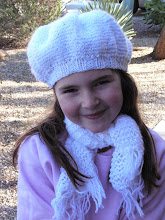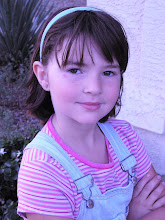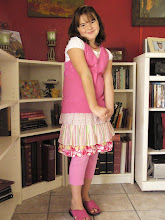I am taking a non-fiction creative writing course this summer and I figured I'd post some of the things I've been writing for the class on my blog as well. Here are a few...
AN ANSWER TO HOW DO YOU WRITE
Let’s see. How do I write? Well, when I was younger I wrote all the time, especially when I was in high school. I wrote in a journal even when I was not assigned to do so. My first experience with writing in a “diary” (mine was a small red one with the word DIARY embossed in gold letters on the front) was when I was around 11. I wrote about silly things really; however, our neighborhood bully somehow got a hold of my diary and wrote some rather obscene things in it about me and my stepfather, really inappropriate things that I would not repeat. I stopped writing in a diary for about four years after that rather traumatic experience. I suppose I should be somewhat grateful to the young man because it was that defiled diary experience that enlightened me on the power of the written word.
I never felt “forced to write.” Even when assignments were given, I enjoyed the process. When I entered the ninth grade and had to keep a journal for my English class, I was reminded of the joy of writing once again. I began keeping a personal journal throughout my high school years. I wrote volumes upon volumes, and I still have them. Many of them are filled with ridiculous love poetry. Sadly, once I hit college, I only wrote when I had to for classes. Occasionally I would scrawl poetry or short quips on a receipt or a restaurant napkin, but for the most part, my personal and exploratory writing disappeared.
Now that I’m a teacher (have been for fourteen years), a wife, a mother, and a graduate student I barely find time to wash clothes. However, when I do find time for myself, I tend to work on my altered book/art journal. If writing something for class, I use my laptop; if it is for me, I tend to use a smooth writing pen—usually colored, but sometimes black. It has to be smooth writing or I’ll none. If I’m writing for myself, my works are short—most often poetry. If for class, they tend to be longer, and I revise as I go. In fact, I tend to revise as I go whether I’m writing for class or for myself, but I do not feel assaulted if further revisions are requested or needed. I do not have superstitions regarding writing, but I do have fears—the usual kinds I suppose, about not being deep enough or interesting enough to capture anyone’s attention. “Who would ever want to read this…” pops into my head frequently when I think of beginning a creative writing piece. All fears aside, I am looking forward to this class.
In Response to Reading like a Writer:
I truly enjoyed Francine Prose’s chapter “Close Reading.” I laughed out loud at the part about Milton enrolling in a graduate program for help with Paradise Lost. I was imagining Swift doing the same thing for A Tale of a Tub, which is also a bit ironic in light of the fact that he desired to enroll in a university but was denied because of his status—this denial put a rather large chip on his shoulder and acted as the inspiration for his success—the whole “I’ll show them…” and I believe he did.
I could relate to much of what Prose said regarding the process of revision and the satisfaction that comes with watching a “sentence shrink, snap into place, and ultimately emerge in a more polished form: clear, economical, sharp.” I wish I could feel that satisfaction more.
As far as how I read literary works, my response would be it depends on the purpose of my reading it. I teach AP English —close reading is the focus of the course. Most of what I do involves teaching kids how to be close readers, to really dissect the writer’s craft and discuss the effect of the writer’s choices, and how those choices help the writer achieve his/her purpose. We spend the majority of the time analyzing others’ works and writing essays that reflect upon a writer’s craft. It is rather exciting to watch students’ own writing style change and develop. As the year progresses, they begin to apply some of the same techniques that published authors use, and I don’t have to tell them to. Of course not all reach that stage of application, but many do and I can safely say that every student improves his/her writing during the year. Even if it is minimal, there is still growth, and I believe much of it is due to the process of close reading and practice writing. I would say, without reservation that reading and writing go hand in hand and close reading is an important part of the process.
I don’t believe I’ve ever been turned off to reading, but I believe escape reading has practically died out in my life. I read mostly because I have to for a class that I am taking or for one that I am teaching. I have so many other responsibilities in my life that reading for the simple pleasure of reading has faded. If I do read for pleasure, it is usually a magazine and in quick spurts. My husband reads all the time, and I do mean all the time. He is always escaping, but I am always doing something that needs to be done around the house or for my daughter, or for the pets, or for school, or for a friend…the list goes on.
One author I find inspiring to read is F. Scott Fitzgerald, mostly because of The Great Gatsby. I love the style of Gatsby more than any other book I’ve ever read—it’s a stylistic feast and every line is dessert to me. I am particularly fond of the Romantics—British and American. When I was in eleventh grade, Transcendentalist writers, Emerson and Thoreau, captured my attention. I was the only one in my class thus moved by these authors, but I took solace in their words, and I felt that they understood my heart and my ambitions. Overall I find reading to be quite an enjoyable experience. I read to my daughter practically every night, and I’d say the only thing that I don’t enjoy reading is Disney princess stories or fairy tales that I’ve read 100s of times—I practically refuse to read Disney stories to my poor child anymore. I joke with her about the pain of having to read such works over and over and how I will simply gouge my eyes out if she has me read any more Disney stories. She laughs at my pain and I often give in. It’s the cute factor that pushes me over the edge. Sucker.









No comments:
Post a Comment